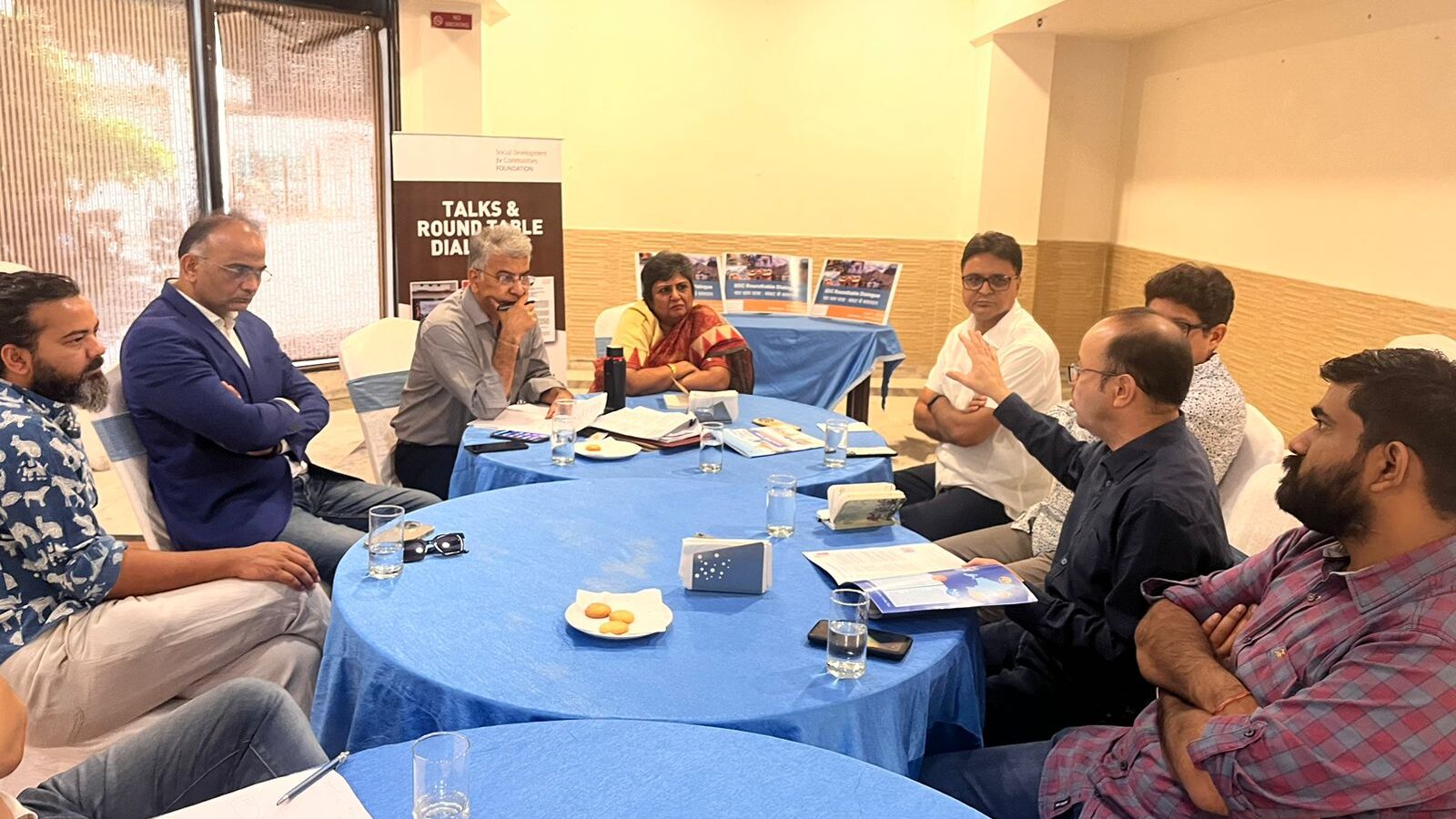This year, the Char Dham Yatra in Uttarakhand has garnered attention due to record attendance of devotees and the resulting disruptions caused by mismanagement. Especially in the initial days, there was a lot of negative news surrounding the pilgrimage, sparking concerns whether this auspicious occasion might turn into a crisis for the state.
SDC Foundation organised a roundtable dialogue to deliberate on the issues and solutions regarding pilgrimage management. Experts from various fields such as public policy, public health, environment and ecology, disaster management, tourism, media, and social sectors participated in the dialogue.

Commencing the roundtable dialogue, SDC Founder Anoop Nautiyal stated that the Uttarakhand government needs to work on six key points to manage the six-month-long Char Dham Yatra systematically. He emphasised the need for the state government to move forward by integrating different aspects such as strategy, operations & management, security, environment, crowd management, and economy concerning the Char Dham Yatra. He also raised questions about the yatra's carrying capacity.
Dr. Latika Mohan, Professor and Head of the Physiology Department at AIIMS Rishikesh, expressed concerns regarding health-related issues during the Char Dham Yatra, stating that despite recommendations from various experts, the government hasn't taken proactive steps. Her colleague, Dr. Shrikant from AIIMS Rishikesh, who has provided services at Badrinath and Kedarnath shrines, mentioned the inadequacy of medical facilities along the pilgrimage route, emphasising the necessity to strengthen medical services, especially during emergencies.
Public policy expert Dr. Pradeep Mehta mentioned that they had prepared policy documents regarding pilgrimage management long ago, which the government hasn't implemented yet. He suggested that the problems on the pilgrimage route could be mitigated by implementing the suggestions provided. Major Rahul Jugran emphasised that the government should prioritise managing the Char Dham Yatra instead of solely focusing on the record number of pilgrims.
Geology and environment expert Dr. S.P. Sati emphasised the necessity of establishing an independent and robust organisation for pilgrimage management, as the increasing crowd is posing severe environmental challenges. He suggested strengthening infrastructure beyond the Char Dham all-weather road. He stressed the need for scientific methods to assess and adhere to the carrying capacity of the char dhams.
Social worker Ratan Singh Aswal highlighted the transport and administrative challenges faced by the local people of Garhwal due to the pilgrimage, stating that apart from the police, no other department seems to make efforts for pilgrimage management.
Senior journalist Pawan Lalchand mentioned the trend of religious tourism increasing in the country since 2014, but the state government hasn't prepared accordingly, resulting in the current crisis. He pointed out the failure of the government to disseminate information to the pilgrims. Journalist Rahul Kotiyal noted the shift in youth participation in religious pilgrimages, indicating the need for the government to identify the type of pilgrims participating.
Senior journalist Sanjeev Kandwal, summarising the round table dialogue, emphasised the need for a long-term policy for pilgrimage management and continuous dialogue with stakeholders to focus on a safer and well-organised pilgrimage, which could serve as a better model for the government compared to the present situation.
SDC Foundation's Dinesh Semwal and Sunit Varma assisted in conducting the dialogue.